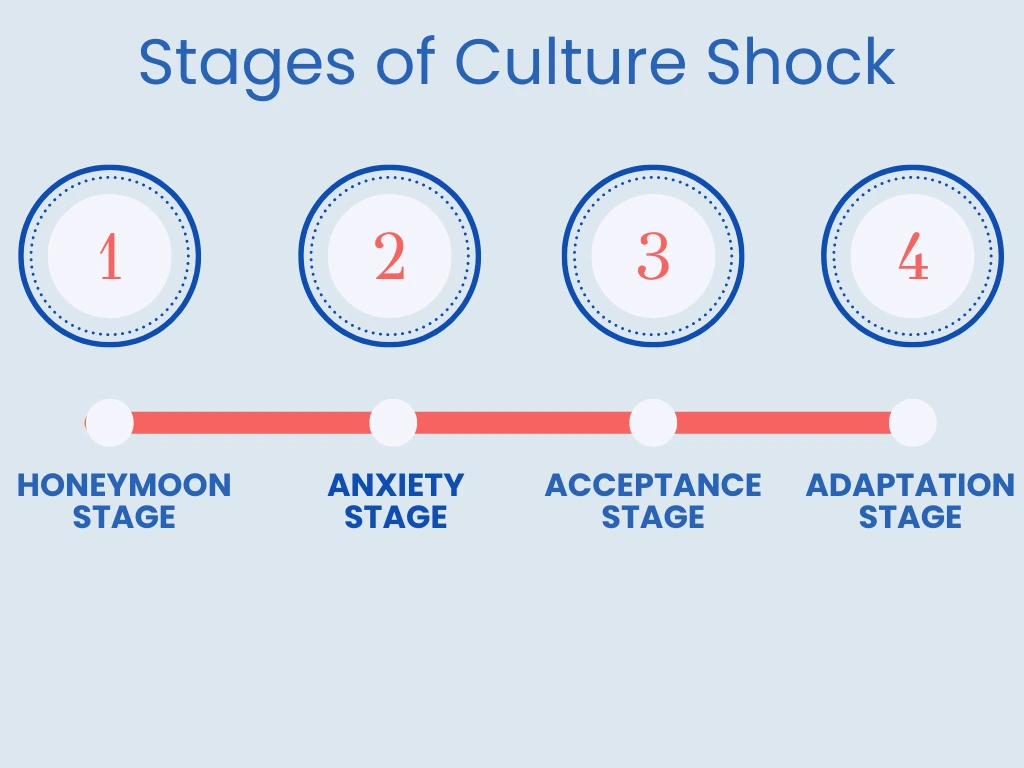
Moving abroad comes with many unique challenges. Finding a place to live, adjusting to work in a foreign place, making new friends—the list could go on and on. All of these challenges can contribute to a phenomenon that most people will experience at some point in their life abroad called culture shock. Japanese culture is infamously different to many other places in the world, however there are plenty of ways to mitigate this feeling when you’re living in such a fascinating and engaging place.
What is culture shock?
If you’ve never been abroad for an extended period of time, then perhaps you are unfamiliar with culture shock. I know it’s a feeling I don’t feel unless I’ve spent more than a month or two in one place with the intention of staying long-term (i.e., not just there for the tourism). It’s a feeling of discomfort while living abroad that is most often accompanied by one or more of the following feelings: anxiety, depression, stress, social isolation. Not the happiest of situations, you might be thinking. It’s certainly not my favorite stage of living abroad, but due to its inevitability, I’ve learned ways to mitigate its effects so that I can continue to enjoy wherever I’m living as much as possible. Because, let’s face it, culture shock doesn’t make wherever you are any less amazing than when you first arrived, starry-eyed and excited to become a local!

Here are some of the most effective ways I’ve found to work with my bouts of culture shock while living in Japan.
Splurge on a home comfort
Sometimes, no matter how much you integrate into a new country, certain aspects of your home country are the only things that will make you feel better. This could be anything from a TV show to a book in your native language, to a favorite brand of bubble bath. For many, however, food is a huge one. I’m not embarrassed to admit that I probably cook pasta about 4 times a week. It’s easy, inexpensive to make in Japan, and it tastes like home. Meat pies are another foreign-tasting food that takes a bit more effort, but really hits the spot when you’ve had enough of miso soup. This could be applied every once in a while, or on a more regular basis if that makes you more comfortable.
And don’t forget about restaurants that offer foreign food! While big-name chains from back home like McDonald’s, Dominoe’s, or _ may call your name from time to time, I encourage you to also look for local places that offer the kind of food you’re missing. For example, there’s a really delicious burger restaurant in the next town over from me where I always make sure to stop when I visit friends in the area. (In case you were wondering, the town is Isahaya City 諫早市 in Nagasaki prefecture, and the restaurant is called ノイズ・アル・ダイナー) It’s a nice way to explore your surroundings while also getting a taste of home.
Of course, if you live in a smaller city or more rural areas of the country, it’s not always as simple as heading to the foreign foods store in town to pick up some salsa verde or hitting up your local Mexican restaurant. In these cases, your best bet is the internet. Amazon Japan has a pretty good selection of certain foods I missed while living in Japan. I was even able to find some Maseca brand corn flour to make corn tortillas!
For some grocery and other nonedible items like toiletries from back home, I recommend looking on Amazon and a website called iHerb to compare prices and availability.
Expand your social network
If you choose to soothe your culture shock with homemade versions of foods from your home country, you’re in the perfect position to employ this next strategy. Oftentimes, culture shock and loneliness intersect and can even feed each other. So, it’s important to be mindful of how much time you’re spending with supportive people outside of work or school. As an introvert, I understand how difficult this can be. Ultimately, I view it as a form of self care that transformed my experience living in Japan.
When attempting to befriend Japanese people, I found one of the best strategies for starting conversation and rapport with coworkers who would eventually become good friends, was sharing some of the aforementioned foods I made at home. Banana bread and brownies are easy and quick to make for a large staffroom. Another time, after mentioning a traditional food from Mexico—where my dad is from—a coworker approached me at my desk to ask about it. Not wanting to waste the opportunity, I ordered some online to prepare at home and share with her. This really opened the door for communication between us, and I think she remembers it to this day.
Become Curious, Not Critical
Look, it’s a fact that anytime we leave the comfort of our home country’s day-to-day interactions and unspoken rules, we’re bound to run into some discomfort in our new place of residence. When faced with these feelings, most people’s automatic reaction is to criticize that which seems wrong or inefficient. But, as anyone with experience living abroad knows, one of the greatest skills you can hone in these situations is curiosity. Instead of exclaiming how “people would never do that back home”, or how you “can’t believe they would say it like that”, try wondering “why” things are done that way. There is always a reason for how culture has grown into what it is today, and there are so many historical and contextual factors that affect the interactions you will have and see.
Of course, maintaining this sense of wonder can become exhausting, so if your brain won’t stop saying “not today!”, then allow yourself to feel puzzled. Sometimes it’s okay to not understand certain ways of handling situations in other cultures. That said, remember to always try to maintain cordiality with the people around you, as you don’t want one moment of frustration to affect future interactions.
There are many other ways to handle bouts of culture shock when they hit. And since we all experience it differently, it’s important to find your own unique way to liaise with these kinds of feelings. Seeking out home comforts, spending time with people in your community, and maintaining an open mind are just a few examples, but there is so much more that can be done! At the end of the day, it’s all about investing in experiences and things that will make you feel more at-home and connected with your life here in Japan. That might take some introspection and time to figure out for yourself, but when you do, you’ll be well-equipped to enjoy your time abroad to the fullest extent.













